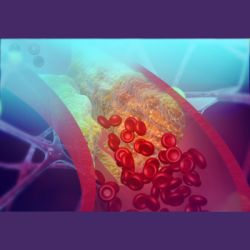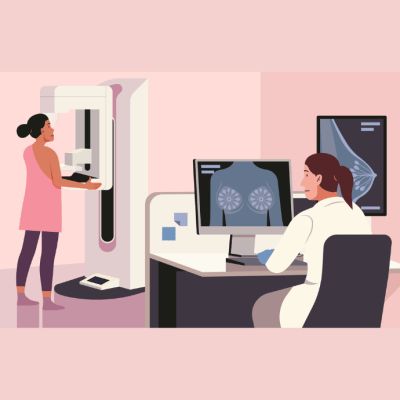At a keynote presentation during the RAD-AID conference on International Radiology for Developing Countries at the Johns Hopkins Hospital in Baltimore, Maryland, PGIMER, RAD-AID and Royal Philips Electronics announced the results of a six-month pilot phase of the Asha Jyoti programme. The programme, which was developed to address several unmet healthcare needs in India, has already successfully achieved its goal to provide breast cancer, cervical cancer, and osteoporosis screening to more than 500 women in its initial pilot phase. Nearly 50% of the women seen were from the poorest socio-economic groups in India, living in households that earn less than $1/day, and the mobile unit provided an opportunity for free health screening on their doorstep.
Asha Jyoti (meaning “Light of Hope” in Hindi and Punjabi), is a Women's Healthcare Outreach Mobile program which was launched on 22 April 2012 at the Postgraduate Institute of Medical Education and Research (PGIMER), Chandigarh. It is a population-based screening programme of women aged between 40 and 60 years, which aims to ensure early detection of breast cancer, cervical cancer and osteoporosis, even before the individual has any signs or symptoms. It was established as a model for preventive healthcare for semi-urban and rural areas in northern India and involved the creation of a special mobile outreach van with imaging technology and clinical referral services to efficiently and effectively address multiple care needs. All women who visited the van received results from their tests within 7 to 10 days. Seven women with suspicious mammography findings and 41 women with suspicious colposcopy findings received follow-up testing and treatment, if needed, at PGIMER hospital.
“Our vision for Asha Jyoti was to develop a high quality, mobile screening facility to provide decentralised primary healthcare on people’s doorsteps, to detect three major diseases affecting women’s health earlier, and to provide diagnostic follow-up and therapy to the community;” commented Dr. N. Khandelwal, Professor and Head, Department of Radiodiagnosis, PGIMER. “A multidisciplinary team of health care specialists from our Institute formulated this programme, and the teams from Philips Healthcare and RAD-AID supported the initiative to make it a reality and ensure that we reached the underserved population in the northern part of India.”
During the 6 month pilot phase, 615 women participated in the screening. Now that the programme is going into full “operational phase” the aim is to screen 2,000-3,000 women every year for at least the next 4-5 years and provide a clear plan for follow-up and further routine screening. The target population is women living in semi-urban and rural areas, and Asha Jyoti has already extended beyond the original remit to reach women across the state: Screening was originally conducted in one sector of Chandigarh, but has also extended to two additional areas in Punjab.
“Together with our clinical partner PGIMER and with Philips Healthcare, we have been able to provide a solution that has delivered some really impressive results and we are extremely proud of the impact that the Asha Jyoti project is having on the lives of some of India’s poorest women,” stated Daniel Mollura, M.D., Founder, President and Chief Executive Officer, RAD-AID. “As a result of the successes to date, we are happy to say that the program will continue and we hope that it will be successful for many years to come.”
Diego Olego, Chief Strategy and Innovation Officer, Philips Healthcare added, “Asha Jyoti is an innovative way of delivering sustainable health care to the most needy women, by bringing state-of-the-art diagnostic equipment, high quality clinical care and education to rural and semi-urban areas. This initiative is one more example of how Philips creates the future of healthcare and enables clinical partners to save lives.”
In addition to being a model for integrating women’s health services, the collaboration is a unique public-private partnership between government (PGIMER) entities, non-profit non-governmental organization (RAD-AID) and the private sector (Philips Healthcare). To make the Asha Jyoti program work, PGIMER delivers the clinical services, RAD-AID is providing educational training and program planning support to health workers and staff and Philips has donated all the equipment and also donated the entire van which was designed and built in India with local suppliers.
The commitment of the Asha Jyoti program was recently recognized in the “Champions of Action” plenary session at the Clinton Global Initiative 2012 Annual Meeting in New York. Presentation of the full results of the pilot phase was given at the RAD-AID Conference at Johns Hopkins Hospital on October 27 by Dr. Niranjan Khandelwal and Dr. Tulika Singh from PGIMER, and Dr. Kathryn Everton and Anna Starikovsky Nordvig from RAD-AID.























